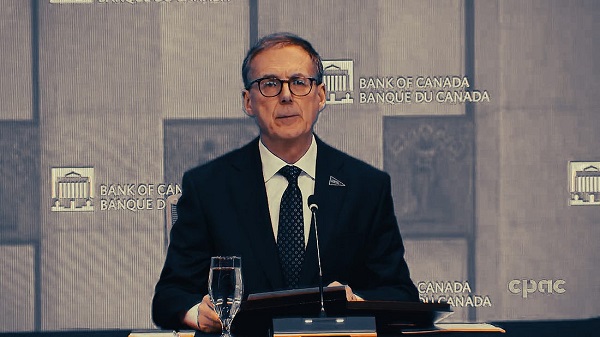Great Reset
Canadian assisted suicide data suggests over 15,000 chose euthanasia last year

From LifeSiteNews
With a slightly higher population than Canada, the state of California also legalized euthanasia in 2016. From 2016 to the beginning of 2023, 3,349 Californians ended their life by euthanasia. In that same time span 44,958 Canadians died by euthanasia.
As we await the federal government’s release of Canada’s 2023 euthanasia data, last week British Columbia released it’s 2023 provincial euthanasia data.
According to the BC Medical Assistance in Dying 2023 report there were 2,767 reported assisted deaths, up by 10 percent from 2,515 in 2022.
It is concerning that “other conditions” represented 32.9 percent of the BC assisted deaths in 2023. Other conditions were reported under these categories:
Autoimmune Condition 2.4%, Chronic Pain 24.8%, Diabetes 9.8%, Frailty 60.5%, Other Comorbidities* 52.1%.
READ: Canadian hospice society provides ‘Guardian Angels’ to protect patients from euthanasia
Canada’s MAiD law does not require that a person be terminally ill. Diabetes, frailty, chronic pain, and autoimmune conditions are usually chronic and not terminal conditions.
The report does not indicate the conditions that comprise “Other Comorbidities” yet the report indicates that mental disorders, as a comorbidity, is within that category.
Euthanasia for mental disorders alone is not permitted in Canada but if a person has a mental disorder and another comorbidity (condition) then the person can qualify to be killed by MAiD.
The report excludes any important information, such as an analysis of questionable deaths or a further examination of why a person actually asked to be killed, rather it only includes their condition.
Canada’s euthanasia statistics
On February 6, 2024 I predicted that there were approximately 16,000 Canadian euthanasia deaths in 2023. At that time I had less data.
Based on the data from Ontario, Quebec, British Columbia, Manitoba, Alberta, and Nova Scotia, I now predict that there were approximately 15,280 Canadian euthanasia deaths in 2023. Here is how I came to that prediction:
%2002.jpg?resize=432%2C360&ssl=1)
CBC Radio Canada published an article on March 9, 2024, stating that there was a 17 percent increase in Québec euthanasia deaths with 5,686 reported deaths representing 7.3 percent of all deaths, which is the highest rate in the world in 2023. The Radio Canada report was based on the Quebec euthanasia deaths between January 1 and December 31, 2023.
The Office of the Chief Coroner of Ontario released the December 2023 MAiD data indicating that there were 4,641 reported euthanasia deaths in 2023, which was up by 18 percent from 3,934 reported euthanasia deaths in 2022.
Alberta Health Services reports that there were 977 reported assisted suicide deaths in 2023, which was up by more than 18 percent from 836 reported assisted deaths in 2022.
The Nova Scotia Medical Assistance in Dying data indicates that there were 342 reported assisted deaths in 2023, which was up by more than 25 percent from 272 in 2022.
READ: Dame Cicely Saunders began the great work of modern palliative care. Let’s continue it
An article published by Global news, which may only be preliminary data, indicated that there were 236 reported Manitoba assisted deaths in 2023, which was up by 6 percent from 223 in 2022.
The BC Medical Assistance in Dying 2023 report stated that there were 2,767 reported assisted deaths, up 10 percent from 2,515 in 2022.
According to the data from Ontario, Québec, Alberta, Nova Scotia, Manitoba, and British Columbia, there were 14,413 assisted deaths in 2023 (in those provinces) which is up by 15.4 percent from 12,490 assisted deaths in 2022 (in those provinces). Since the total number of Canadian assisted deaths in 2022 was 13,241, I can predict that there were approximately 15,280 Canadian assisted deaths in 2023.
Reprinted with permission from the Euthanasia Prevention Coalition.
Censorship Industrial Complex
Pro-freedom group to expose dangers of Liberal ‘hate crime’ bill before parliamentary committee

From LifeSiteNews
Canada’s Liberal justice minister has confirmed that the legislation would allow a person to be criminally charged for social media posts deemed offensive by the government.
A top Canadian pro-freedom group has been asked to testify regarding the dangers of the Liberals’ proposed internet censorship legislation.
In an October 28 press release, the Democracy Fund (TDF) announced that the Standing Committee on Justice and Human Rights has invited them to appear at the House of Commons to debate Bill C-9, which experts have warned could kill free speech in Canada.
“Our lawyers have extensive experience defending Canadians accused of breaching speech codes or uttering speech deemed ‘offensive’ by authorities,” TDF litigation director Mark Joseph stated. “We look forward to sharing our legal expertise and concerns about Bill C-9 with the Committee.”
Bill C-9, the Combating Hate Act, has been blasted by constitutional experts as allowing empowered police and the government to go after those it deems have violated a person’s “feelings” in a “hateful” way.
Bill C-9 was brought forth in the House of Commons on September 19 by Justice Minister Sean Fraser. The Liberals have boasted that the bill will make it a crime for people to block the entrance to, or intimidate people from attending, a church or other place of worship, a school, or a community center. The bill would also make it a crime to promote so-called hate symbols and would, in effect, ban the display of certain symbols such as the Nazi flag.
Canada’s Liberal justice minister has confirmed that the legislation would allow a person to be criminally charged for social media posts deemed offensive by the government.
Currently, the legislation is undergoing debate as Canadian lawmakers discuss how best to frame and implement the bill. Issues with the legislation, as pointed out by TDF, include “broad and undefined language” that could allow for widespread censorship online.
TDF warned that the bill “could be used to justify increased censorship and restrict Canadians’ rights to peacefully assemble, protest, and speak freely, particularly on digital platforms.”
The Committee meeting, scheduled for November 6, is a crucial part of Parliament’s review process before the bill continues to its third reading in the House of Commons.
TDF’s warnings against the legislation echo statements from various pro-freedom legal groups across Canada.
As LifeSiteNews previously reported, Justice Centre for Constitutional Freedoms (JCCF) president John Carpay has warned that Canada will be a “police state by Christmas” if lawmakers pass three new bills introduced by the federal Liberal government of Prime Minister Mark Carney.
Carpay further predicted that Bill C-9 would “empower police” and the government to go after those it deems have violated a person’s “feelings” in a “hateful” way.
The proposed legislation mirrors a movement in Germany to restrict sharing controversial or anti-government content online by arresting citizens who posted content deemed ‘hateful’ by the German government.
As LifeSiteNews previously reported in June, German authorities conducted more than 180 operations across the country, targeting individuals accused of spreading hate and incitement online – most of them tied to content considered far-right.
Business
Canada has given $109 million to Communist China for ‘sustainable development’ since 2015

From LifeSiteNews
A briefing note showed Canadian aid has gone to ‘key foreign policy priorities in China, including human rights, gender equality, sustainable development, and climate change.’
A federal briefing note disclosed that well over $100 million has been provided to the Communist Chinese government in so-called “foreign aid” to promote “sustainable development” that includes woke ideology such as gender equality.
As reported by Blacklock’s Reporter, a recent briefing note titled Assistance to China from May for the Minister of International Development showed $109 million has gone to “key foreign policy priorities in China, including human rights, gender equality, sustainable development, and climate change” since 2015 and $645 million since 2003.
The briefing note asked directly if funding was “going to the Government of China.”
In reply, the briefing note stated, “Canada has not provided direct bilateral assistance to Chinese state authorities since 2013, though it continues to provide small amounts of funding to international partners and non-state partners on the ground.”
Former Prime Minister Justin Trudeau came to power in 2015 and increased relations with the Communist Chinese regime. This trend under the Liberal Party government has continued with Prime Minister Mark Carney.
During a 2025 federal election campaign debate, Conservative Party leader Pierre Poilievre called out Carney for his ties to Communist China.
Conservative MP Andrew Scheer has consistently called out any money at all going to China, saying, “I don’t believe Canadian taxpayers should be sending any money to China.”
“We’re talking about a Communist dictatorial government that abuses human rights, quashes freedoms, violates rights of its citizens, and has a very aggressive foreign policy throughout the region,” he noted.
Scheer added that he has been calling on the Carney Liberals to “stand up for themselves, stand up for Canadians, stop being bullied and pushed around on the world stage, especially by China.”
Most of the money in foreign aid was spent through globalist-backed agencies such as the World Bank and the United Nations Development Program. Some 39 percent of the money was said to have gone straight to Chinese recipients, but no projects were itemized.
Other countries have received millions of dollars in foreign aid, with $2.1 billion going to Ukraine, $195 million to Ethiopia, $172 million to Haiti, and $151 million to the West Bank and Gaza last year.
Foreign aid to all nations totaled $12.3 billion.
LifeSiteNews recently reported that the Canadian Liberal government gave millions in aid to Chinese universities.
China has been accused of direct election meddling in Canada, as reported by LifeSiteNews.
LifeSiteNews also reported that a new exposé by investigative journalist Sam Cooper has claimed there is compelling evidence that Carney and Trudeau are/were strongly influenced by an “elite network” of foreign actors, including those with ties to China and the World Economic Forum.
-

 Business1 day ago
Business1 day agoCanada heading into economic turbulence: The USMCA is finished and Canadian elbows may have started the real fight
-

 Internet2 days ago
Internet2 days agoMusk launches Grokipedia to break Wikipedia’s information monopoly
-

 Business2 days ago
Business2 days agoBill Gates walks away from the climate cult
-

 National1 day ago
National1 day agoCanadian MPs order ethics investigation into Mark Carney’s corporate interests
-

 National1 day ago
National1 day agoCanada’s NDP is now calling women ‘non-males’
-

 Business1 day ago
Business1 day agoFord’s Liquor War Trades Economic Freedom For Political Theatre
-

 Banks1 day ago
Banks1 day agoBank of Canada Cuts Rates to 2.25%, Warns of Structural Economic Damage
-

 Health1 day ago
Health1 day agoLeslyn Lewis urges Canadians to fight WHO pandemic treaty before it’s legally binding










